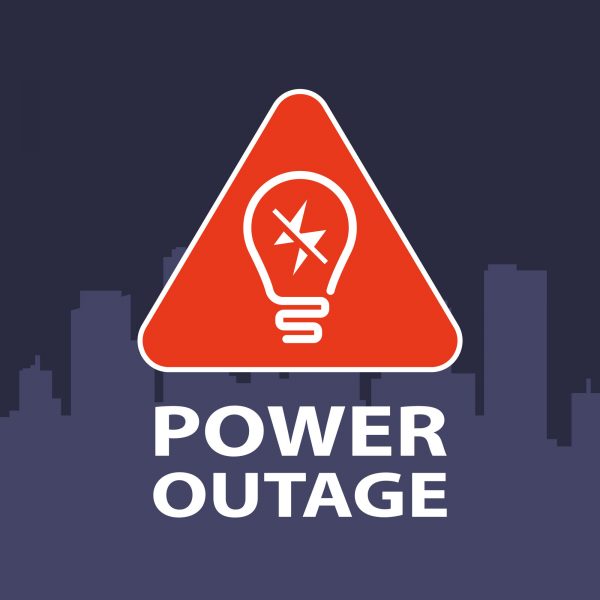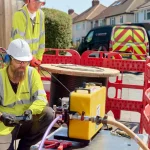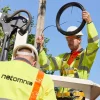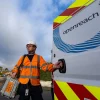Ofcom Refines Thinking on Cost of Adding Power Backup to UK Mobile Sites

The telecoms regulator, Ofcom, has today published the results of a recent study it conducted into the costs of improving power resilience at UK mobile network sites (masts etc.). This finds that the cost of ensuring “almost everybody” could maintain access to the emergency services for up to 4 hours, in the event of a power cut, would be approx. £1bn.
Communications providers in the UK currently have a legal obligation to identify, prepare for and reduce the risk of anything that compromises the availability, performance or functionality of their networks. But such networks are highly complex and outages can still occur, with Ofcom warning that the consequences of these are “likely to become more severe as society becomes increasingly dependent on them to function.”
The regulator has thus been working to improve network resilience since 2023, and they’ve already made some progress (here). But the issue of improving power backup for Radio Access Networks (RAN), such as at the mobile mast sites operated by Three UK, EE, Vodafone and O2, has required further work. Mobile operators are also known to have balked at the potential costs of deploying national battery backup (here).
Advertisement
For example, Ofcom’s original Call For Input (CFI) on the matter asked questions about the feasibility of mobile operators installing a minimum 1 hour of battery backup at RAN sites. But Ofcom’s own illustrative example suggested that to install this on such sites, where power backup is likely to be feasible, could cost in the region of £0.9 – £1.8bn (this would end up being passed on to consumers as higher prices).
Due to the challenges and high costs involved, the regulator didn’t initially consider it “proportionate” to include such a measure in last year’s updated guidance and instead set about conducting a deeper analysis to “determine if additional resilience measures are needed“. The original costing estimate was also derived from a high-level (limited) understanding of the total number of UK masts, which required some refinement.
Ofcom has today published a new technical report into Mobile RAN power resilience, which reveals some very interesting findings.
Key Findings – Mobile RAN Power Resilience
The output from the modelling and analysis suggests that:
a) For short duration power outages up to around 1 hour, around two thirds of the population would be able to make emergency calls. This level of protection is enabled through the power back-up of around 20% of all mast sites in the UK up to at least one hour, coupled with the fact that mobile phones will roam onto available networks to make an emergency call, so are not dependent on their home network.
b) As the duration of an outage increases fewer consumers can make emergency calls: only around [REDACTED] could make an emergency call in the event of a power outage lasting up to 6 hours. This is because far fewer (5%) sites [REDACTED] have backup facilities of at least 6 hours.
c) We estimate that the costs to upgrade mobile networks to ensure almost everyone can maintain access to the emergency services for up to 4 hours would be approximately £1 billion. As we noted in our CFI, Ofgem data indicates that the majority (approximately 90%) of power outages last between 3 mins and 3 hours.
d) Further enhancements or network hardening to increase the duration of protection and/or to allow more services (such as data [broadband] connectivity or the ability to make calls to any number rather than simply 999) would incur significantly higher costs.
e) Technological innovation may provide alternative solutions to maintain connectivity, such as the increasing availability of ‘Direct to Device’ satellite communication. The geographic extent, capacity and timescales of such approaches need further investigation before they can be considered viable alternatives to current mobile backup measures.
f) Internationally we have not seen a common consensus emerge on how to ensure resilience on the RAN, with individual countries adopting different positions depending on their circumstances. For example, challenging weather conditions prompted Australia and Norway to implement mobile network power backup, with Australia taking a voluntary approach (12 hours for a limited number of sites) and Norway mandating it (2 hours, with 4 hours in rural areas), while Switzerland has considered plans to mandate up to 72 hours of backup with potential service restrictions.
The data and insights contained in this report do not form a cost/benefits analysis (CBA) and do not quantify the value of different levels of resilience considered. But the information is intended to help inform further discussion on power resilience in the mobile network and power backup of MNO mast sites.
Advertisement
Ofcom are now considering what their next steps in this work should be and will set that out at a later date. A solid solution still seems to be some distance away. The report also included a table showing the estimated ‘aggregate’ cost range to improve RAN resilience, UK wide, across all mobile operators and over different time periods (note: the £1bn estimate for up to 4hrs mentioned earlier only covers access to the emergency services).

Mark is a professional technology writer, IT consultant and computer engineer from Dorset (England), he also founded ISPreview in 1999 and enjoys analysing the latest telecoms and broadband developments. Find me on X (Twitter), Mastodon, Facebook, BlueSky, Threads.net and Linkedin.
« Netgem TV Adds UK Support for Fox’s New Tubi Streaming Service





















































In my mind there are only really three questions here…
a) Should people be able to (relatively) universally summon the emergency services using the telephone network? In my view the answer to this is yes, so…
b) How should we operate this resilience? Until recently we had landlines which could be operated using a corded phone, which would be powered from the telephone exchange, which had a degree of resilience against power cuts. But with the PSTN switch off this won’t be the case, so we probably need to rely on the mobile network, so…
c) Who should pay for this? In my mind investment in mobile networks should come from the mobile networks. Ofcom’s general condition A3.2 obliges networks to ensure that their services maintain “the fullest possible availability […] in the event of catastrophic network breakdown or in cases of force majeure” so Ofcom should make it clear that they will take enforcement action if the mobile networks do not deploy additional resiliency against power cuts.
“In my mind investment in mobile networks should come from the mobile networks.”
I agree but that’s still basically the same as saying it should come from customers, since that’s how they earn their money. So how much extra will it really cost us?
It’s okay, the mobile networks tell us that their exorbitant annual price increases fund network improvements… So Ofcom can better enforce the General Conditions to give the networks an opportunity to invest 🙂
Newest phones have satellite connection for emergencies. We expect these to dominate slowly. I don’t think battery back up is a good reason to increase taxes or increase prices. I don’t think this is what UK needs the most
Which mainstream mobile phone sold in the UK can connect a call to 999 via satellite? I’m not aware of any, but perhaps I’m just a bit of a luddite. In my mind the iPhone’s emergency text message system isn’t really an adequate alternative to calling 999 because e.g. messages are slow to send and they’re only one way.
@Ben, latest iPhones, Pixel 9 and no doubt many others coming soon. Google it.
Satellite calls are probably on the way, I believe T-Mobile are bringing them in the US.
@Billy none of those devices can route a 999 call via satellite in the UK 🙂 They’re both text messages only, and on the Pixel 9 the feature is also US only.
This is fine for those who purchase high end phones on contract, but perhaps less so for those purchasing as £100 phone on pay as you go when thier old one is broken or becomes unusable.
It’s often the elderly and vulnerable who are most behind the curve, these same people are more likely to need emergency services
@ben https://www.theregister.com/2025/02/10/tmobile_goes_live_with_beta/
No doubt in less time than it takes to get a government “steering committee” together to perform a “consultation”. Don’t want to rush.
Great news. Vodafone performed a trial in the UK (Wales) of a phone call using a satellite and expect to roll out a service soon. Expect an announcement this year
https://www.ispreview.co.uk/index.php/2025/01/vodafone-uk-beat-starlink-with-first-mobile-to-mobile-video-call-via-satellite.html
Then Vodafone can invest in satellites instead of battery backups for their terrestrial cells. General condition A3.2 is pretty clear and can be implemented in multiple ways — e.g. perhaps…
– Vodafone could use satellites
– EE could add battery backup to their masts
– O2 could negotiate a roaming agreement with EE which only applies during power failures
@Ben For 999 calls no roaming agreement is needed, it happens automatically if no signal is available from the users regular network.
£1bn isn’t that much, they pay out more than at spectrum auctions. Access to the emergency services is important. You can’t tell your body to delay a heart attack or stroke just because there’s a power cut.
The thing is…. the resilience of the analogue telephone network during a mains power failure is more an artefact of its development, rather than an initial design goal.
Mostly since when the network started, mains power didn’t even exist.
Until 50-60 years ago, for most people, if you wanted to call the emergency services, you went to the nearest telephone box, or popped to the nearest neighbour who had a telephone.
Then again, until 20 years ago, again for most people, if you were in the middle of nowhere, you were completely on your own. Wait until you could flag a passing motorist down, or mountain rescue found you.
Like all progress, there are benefits and disbenefits.
Considering the jaw dropping price rises in recent years, I’d say that networks can more that afford to cover the cost. For example O2, they are increasing my contract price of £ 6=99 but nearly £ 2 . This is not just to cover ordinary inflation
Agreed, rampant profiteering across the board these days.
Also saying something is going to cost £1bn is sort of irrelevant unless compared to the revenue and profit of who is going to pay. Didn’t Vodafone alone have over 1bn profit last year?
My mobile contract over the past 16 years has fluctuated between £7 and £13, for unlimited calls, texts and 100GB data. All it takes is a 5 minutes call each year or two to negotiate for the right deal.
Communications infrastructure in the UK is severely lacking. The issue like everything else is for over half a century of there has been minimal investment by these companies, with record bonuses and dividends given to CEOs, boards and investors yearly rising by record breaking amounts year on year. Then if we want minimal improvement, customers are, yet again, forced to pay the cost with inflation busting price rises while those at the top reward themselves with even larger bonuses – it’s daylight robbery.
Minimal investment? Wow.
During the power outages here in NI after there recent storm a lot of areas where left with little to no signal. My phone was straight onto satellite SOS most of the time. The signal went within minutes of the power going out. If I had needed to call 999 I am not sure I would have got through on any network without the satellite service on iPhone.
Norway requires since 2015 4 hours bbu is installed. Why? Because it’s of national importance.
So legislate copy and paste and jfdi.
Lax regulators unduly influenced by industry? Go figure.
A bit of a disgraceful situation I’d say.
In Norway the average mobile phone bill is over twice that in the UK. Network’s can be made resilient, but do customers want to pay the price?
£13 UK £27 Norway
Source: https://www.numbeo.com/cost-of-living/compare_countries_result.jsp?country1=Norway&country2=United+Kingdom
Remember, this is the UK, so a pigs ear of a solution will be the outcome whichever way the decision goes
The OFNL kit in the OR exchange servicing my estate doesn’t even have a generator backup, the BBU lasted about an hour when there was an outage (my own UPS outlasted it).
thats 400+ new homes with no service, regardless of any consumer UPS
The OFNL kit in their cabs has battery backup, however their upstream providers don’t always protect their kit in the exchange.
@T, yes like i said, the BBU lasted about an hour
The Mobile Network providers have trolled their customers and can have no complaint about having to add proper battery back up to improve their network resilience.
They always knew they were CNI from the get-go and the level of resilience and battery back up will have been part of the business case for both their network in general as well as each Mast installation.
If these providers have chosen to provide what they already knew would be an inadequate level of battery back up, and therefore resilience, they made an active decision to build cheap at the expense of resilience.
And now they have been caught out and will need to spend the money they should have spent in the first place, now that the Regulator has finally looked at the situation and is finally considering the possibility of people losing their lives due to the lack of connectivity in an emergency, once the analogue lines are gone.
Cry me a river. I am sure these network providers have been happily paying their shareholders dividends while not investing in resilience.
We just need OFCOM to make sure the costs for implementing the required level of resilience are not passed onto the customers. Shareholders should foot the bill.
We are entering an era where storm activity is only going to get worse and more frequent, and while there may certainly be a need for MNOs to make their networks more resilient, if power outages related to the increased/more severe storm activity are the root cause of power failure then it is the electricity distribution system that needs to be made more resilient. This includes routing cables away from trees and the like, whether that be under, over, or around.
This is not just a comms issue. We will become increasingly dependent on electricity for heating and transport in the coming decades, so the economic losses and hardship from power outages will only escalate.
Fair play. That is a good shout.
During a recent widespread outage in Hertfordshire. I believe all phones will rehome to the very few masts with backup power, so get swamped. This reflected in my experience.
My phone had signal but I couldn’t get any data or voice calls to work.
On power returning my home FTTP broadband came back very quickly (when my router came back in less than a minute). This makes me strongly suspect (give how long professional network gear usually takes to boot) the FTTP upstream equipment might be better protected from outage.
Tempted to buy a small UPS to run my router (a RPi5), a PoE switch that can run my WAP and the fibre ONT, and use my SIP provider on my WiFi cordless phone or SIP app on my mobile.
This looks like it might be more resilient than the mobile networks!
And one benefit of fttp is that the distribution network at least is all passive.
So protection presumably is more cost effective
Netomnia and others have big cabinets, with batteries, scattered round their areas.